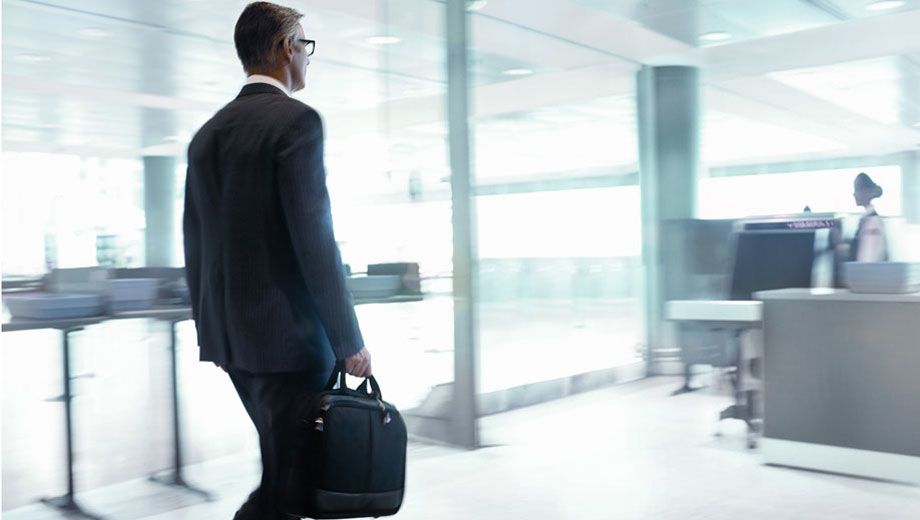AusBT Awards 2011: Best Technology for the Business Traveller

Best Laptop for Australian Business Travellers: MacBook Air & Toshiba Satellite Z830
There’s no argument that thin-and-light laptops are best for frequent flyers, and at the close of 2011 that means the evolutionary notebook branch known as the ultrabook.
Barely-there weights and waistlines, solid everyday performance and close to all-day battery life are a magic mix for business travellers.
The best all-round ultrabook remains Apple’s MacBook Air, unless you (or your company) is wedded to Windows.
In that case Toshiba’s Satellite Z830 wins out from the pack for its full-size HDMI and VGA ports, Ethernet networking jack, backlit keyboard and close to eight hours of battery life.
Best Smartphone for Australian Business Travellers: Samsung Galaxy Nexus
Not surprisingly, this award proved to be one of the toughest calls our judging panel had to make.
Avoiding the obvious and near-religious lines of Apple vs Android or indeed Apple vs Anybody Else, it came down to Apple’s iPhone 4S vs Samsung’s Galaxy Nexus.
The iPhone 4S took Apple’s solid iOS platform but built only incrementally on it, even taking Siri voice recognition into account.
Samsung’s Galaxy Nexus, however, is not only the first phone with the superb new Android 4.0 ‘Ice Cream Sandwich’ software.
It also upsizes smartphone screens to a large lush 4.65 inches but thanks to the slim profile and elegantly curved design remains comfortable to use.
Buttons along the bottom of the phone are virtual rather than physical, so they relocate themselves no matter which way you’re holding the phone.
The new Android Beam feature, which lets you share contacts, web pages, video clips and even apps (as download links on the Android Market), will become a key drawcard of Android 4.0 phones.
So while the iPhone 4S is a great smartphone in itself, the Samsung Galaxy Nexus doubles down as the shape of smartphones to come.
Best Tablet for Australian Business Travellers: Apple iPad 2
Less than two years after the iPad’s April 2010 debut, tablets seem to be following smartphones as a must-have for the frequent flyer. A quick glance around any airport lounge will attest to their popularity.
Nobody would be surprised that our ‘best tablet’ discussion boiled down to another Apple vs Samsung bout.
In the shiny red corner, Apple’s iPad 2: slimmer, lighter, faster and just better-er, especially with FaceTime for keeping in touch with loved ones while you’re on the road.
In the blue corner: Samsung’s Galaxy Tab 10.1, made famous as the tablet Apple didn’t want you to have.
But while the Galaxy Tab 10.1 has the right stuff on paper, it lacks the polish and end-to-end ecosystem which makes the iPad so compelling to travellers who want a hassle-free experience when it comes to apps, e-books, multimedia and the rest of the deal.
Samsung may have the best Android tablet, but with the iPad 2 Apple has the best tablet of them all.
Best Mobile Broadband for Australian Business Travellers: Telstra
“What do we want? Connectivity! When do we want it? Any time!” That could well be the marching cry of Australia’s legion of domestic business travellers (Roy Morgan Research tells us that 2.1 million Australians took at least one domestic flight for business within the past 12 months).
And for mobile broadband, ‘any time’ also means ‘anywhere’ – or as close as you can get.
Telstra has business travellers covered, quite literally, with the extensive reach of its Next G network. The experience of the Australian Business Traveller Awards judging panel is that Next G’s reach is greater, and speeds consistently higher, than competing networks.
Add the new super-speed 4G technology – we’re talking around 20Mbps around the CBD and in the middle of larger regional centres – Telstra mobile broadband is the best choice to stay in touch (and also sidestep those insane hotel internet charges!).
Best eBook Reader for Australian Business Travellers: Amazon Kindle WiFi
Ebook readers have finally moved into the mainstream, providing frequent flyers with an easy way to catch up on their up on reading without losing space or adding bulk to their carry-in luggage.
Amazon’s latest Kindle WiFi ($139) ticks just about every box. It’s slim, light and compact, with a sharp and highly legible display, and runs for weeks on a single battery charge.
And while the Kindle doesn’t work with common ePub format, there’s plenty of choice on Amazon’s Kindle store for hassle-free buying and downloading direct to your Kindle.
Best App for Australian Business Travellers: Frequent Flyer Calculator
With over half a million smartphone apps on jostling for space on your home screen, how to choose just one that’s best for business travellers? When we considered Australian business travellers the field narrowed considerably.
The iPad editions of The Sydney Morning Herald and The Age make the shortlist for their slickly innovative design and how they help frequent flyers stay up to date with news, even offline.
But we just couldn’t go past the unofficial Frequent Flyer Calculator app. Officially and somewhat cumbersomely titled “Frequent Flyer Calculator First Class”, this free app by Brisbane coder Adam Ware is essential to keep track of – and make the most of – your Qantas Frequent Flyer points (and status credits).
20 Dec 2011
Total posts 14
The MacBook Air is still a good option for those tied to Windows. It's very easy to run a full Windows installation on a Mac, or a virtual Windows machine inside Mac OS.
04 Nov 2010
Total posts 670
It is but there area lot of backward companies or rather companies with backward IT departments which simply won't let you run a Mac, it's all got to be standard issue like Dell or Lenovo or Toshiba. :(
Hi Guest, join in the discussion on AusBT Awards 2011: Best Technology for the Business Traveller